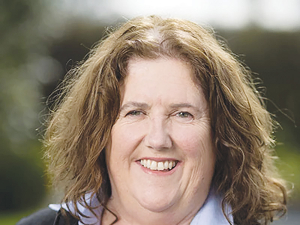DairyNZ Levy Vote Underway as Chair Highlights Seven-Fold Return
Voting has started for the renewal of DairyNZ's milksolids levy.
 DairyNZ’s farm performance manager, Sarah Speight says while pasture covers look great, farmers face a myriad of challenges.
DairyNZ’s farm performance manager, Sarah Speight says while pasture covers look great, farmers face a myriad of challenges.
It looks good physically on farm but below the surface things are far from ideal.
That's the view of DairyNZ's farm performance manager, Sarah Speight, who says in general if one looks at pasture covers, cow condition and milk production, things aren't too bad.
She says this is amazing given the season has been all over the place with adverse weather events which have made it hard for farmers to manage their operations.
Sarah Speight says most of the maize silage has now been harvested, although yields are below last year's levels.
"But it's not as bad as originally thought," she told Dairy News.
"There have been problems with pests and the weather has delayed the planting of maize. In one case, a farmer told me he had to plant his crop three times because the weather wiped out the first two plantings," she says.
Speight says in the upper North Island the cyclones which brought heavy rainfall had a bizarre positive effect by enhancing grass growth, meaning some extra grass silage could be harvested.
She says there will be challenges in Otago, which has been hit by a drought and there may be a shortage of grass for the cows, but the South Island is pretty big and there are options to bring in feed and take other steps to mitigate the problems.
In Northland, Hawke's Bay and the East Coast of the North Island, infrastructure remains a problem with some farms still without road access. She says the bridge at Patoka in Hawke's Bay has been replaced, enabling stock access and milk collection, but other places are still cut off.
"Farmers in Northland are getting back on track with regrassing taking place and autumn calving progressing well.
"It's much the same on the West Coast of the South Island where things are looking up in terms of the farm, but it's financial issues and concern about rising costs that are causing the angst," she says.
Former Fonterra executive Alex Turnbull has been appointed CEO to lead all five Yili Oceania Business Division companies in New Zealand.
Fonterra executive René Dedoncker is leaving the co-operative later this year to lead Australian agribusiness Elders.
Alliance Group and the Southland Stags rugby team have joined forces in a partnership that will see the the meat co-operative's farmgate brand feature on players' team kits and replica jerseys.
Fonterra's plan to expand its organic programme to the South Island is being well received by farmers, the co-op says.
Voting has started for the renewal of DairyNZ's milksolids levy.
The most successful catchment groups in NZ are those that have 'a source to sea' approach.
OPINION: A dairy version of fantasy football has been launched.
OPINION: In recent weeks beaches in Auckland, Wellington and Christchurch have been unsafe to swim in because of recent heavy…